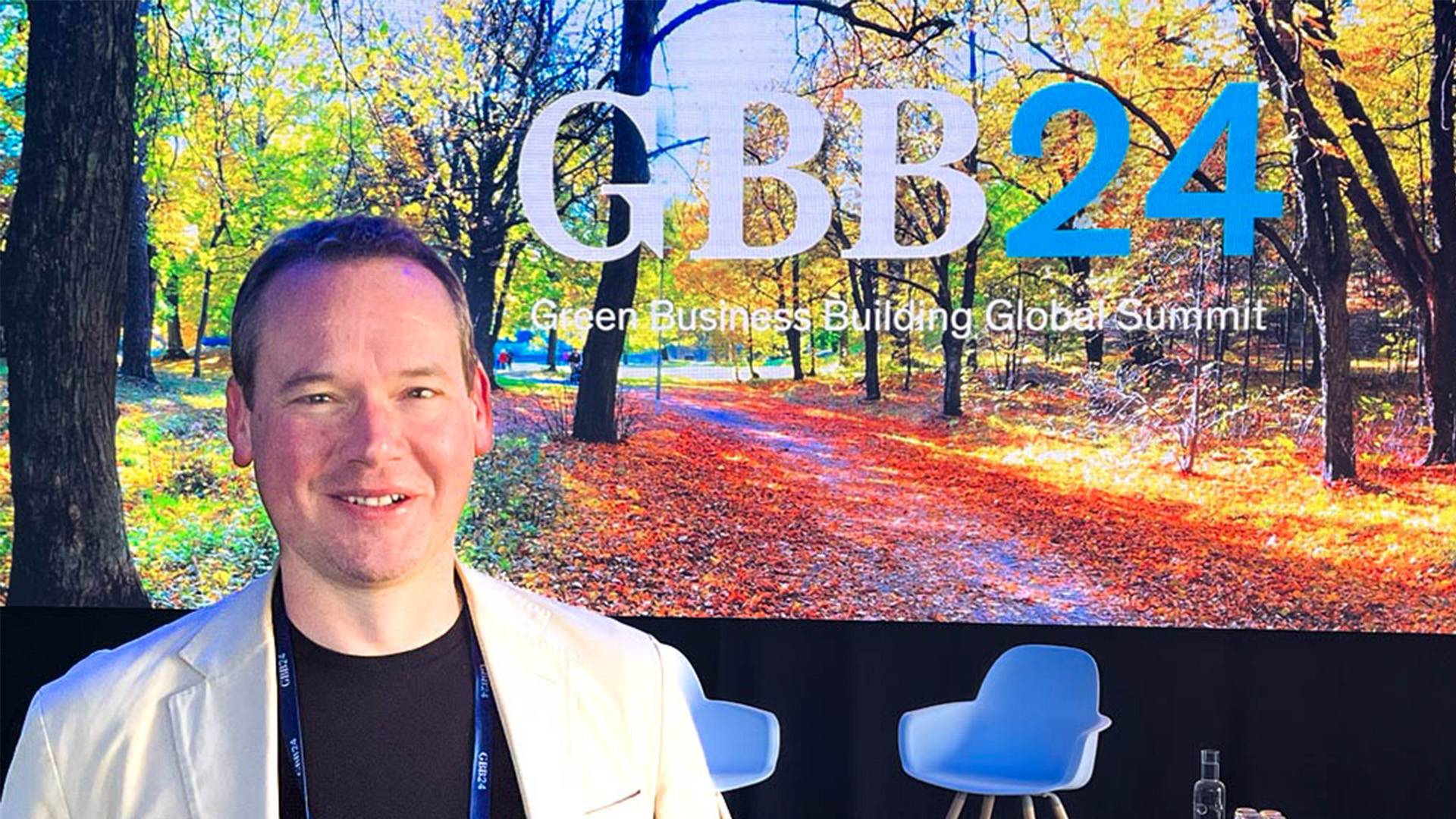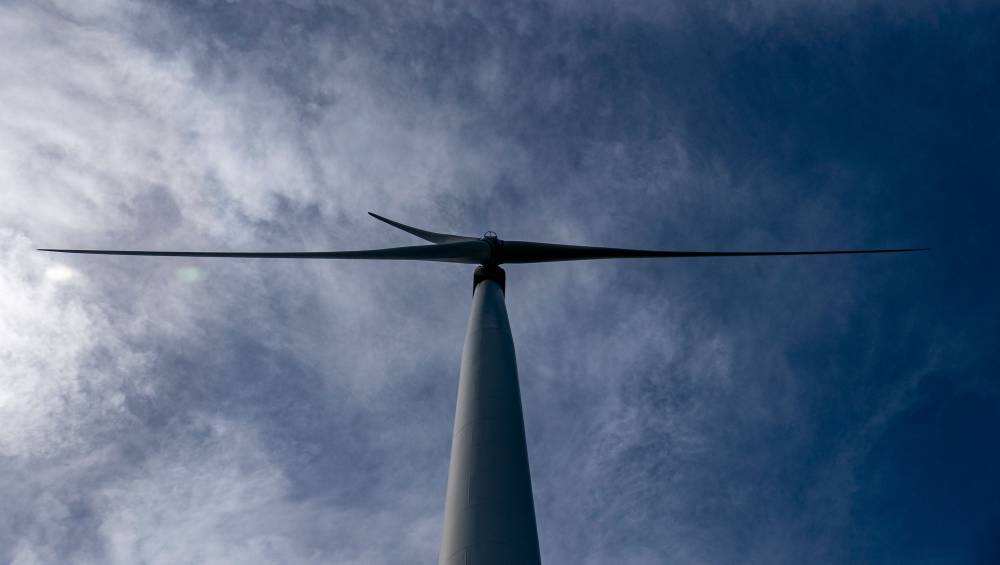 blogs
blogs
Discussions on the main stage: McKinsey & Co Green Business Building Global Summit
A week ago, I reflected in my previous blog on some of the key take-aways from the recent McKinsey & Co global summit for ‘Green business’. Whilst there was much to digest, one of my big surprises was, that unlike virtually every other walk of life, there was almost no conversation about the role of AI in engineering or R&D and it’s pivotal role in driving global decarbonisation. So that’s what I talked about, with McKinzey & Co partner, Alessandro Mattozzi, and here’ what we said:

Alessandro Mattozzi
I believe that we will touch something that is super exciting, that is combining the uniqueness of what we need to do for the climate, acceleration and developing immensely efficiently product, as well as doing it quickly and doing in a cost-efficient way. I believe that what artificial intelligence is doing, what deep learning is doing for technology development, is completely revolutionising how products and services are developed. I would like to welcome Dominic Vergine, the CEO and founder of Monumo, on stage to discuss this.
Dominic Vergine: So we are here to think about decarbonisation. And yet at the moment, AI is increasing the tech sector's emissions. We're basically boiling the ocean with AI that is focused on mimicking language, mimicking text, mimicking the things that we can do perfectly well ourselves. I would just argue that there's a place to focus AI on the real heart of decarbonisation and to put a tiny fraction of the investment going into large language models into the data sets that we need to achieve much, much better engineered products in the future.
Engineering systems are highly complex and they require all sorts of different skill sets to be efficiently brought together. At the moment, we create components in silos and then bring them together and that's what we sell. So, for example, different divisions will make the core components that make up a car’s powertrain such as for example motors, inverters, and power electronics. Each component is optimised but not at a holistic system level.
Today with AI, and I really mean deep tech and the latest computing techniques, we can now do things we’ve never been able to do before, which is to explore complex engineered products at a system level and to do so at speed. We can explore every conceivable way of achieving a result, and actually start seeing optimal systems that not only reduce costs dramatically, but improve performance, efficiency, material use, and recyclability.
Alessandro Mattozzi
Let me spin on this one, because you said deeptech and the role in development. I believe that deeptech applied in the development of product and service will allow us in the coming five years to accelerate three to five times the R&D speed, time to market. Same achievement in terms of cost-curve development and performance development. And in five years, we will not always speak about a ticket to win, referring to deep tech in development. It's more a ticket to be in the game, a ticket to play.
Dominic Vergine
Absolutely.
Alessandro Mattozzi
So I would like to start speaking with you regarding the application that you have in Monumo of these deep tech techniques for your products.
Dominic Vergine
So we've started by looking at electric motor systems or power trains if you will. They've got six key areas that you've got to focus on, and you need to go deep and then broad to find the optimal. We're able to do that because we can simulate up to 10 million simulations a day, where industry standard is a few tens of thousands. What this means for the incumbent engineering companies and the OEMs is they need to adopt this technology very quickly because the companies that have it will be decades ahead of ones that don't. It’s going to be a hugely disruptive decade in engineering for the OEMs and the tier one automotive suppliers. We're currently mainly focused in automotive, but our technology is applicable across every kind of complex engineering. Because of the cost reduction, coupled with the improvement in performance, it's going to really shake up the companies that aren't early adopters.
Alessandro Mattozzi
There is something regarding democratisation of the technology. Coming from the simulation world myself this morning I was reflecting how more cost-efficient and fast simulation is compared to twenty years ago. If we start looking to the future, how will R&D product development and service development look like five years from now with the speed of technology development and cost democratisation of technology?
Dominic Vergine
Key to further simulation speed, innovation and cost efficiency will be driven by something that we haven't really been talking about very much, and that is data sets. AI started with large language models because we had a huge morass of human data sat there on the Internet that was just too tempting not to train models on. But, I believe that the real value is going to come not from LLMS but from TEMs – targeted engineering models – that will allow us to improve our products, and replace oil with electrification.
Today, we don't have an internet of engineering data. We’re already starting to see value in health data, where AI has been used effectively. But, we need to start consciously, deliberately, building out the data sets that we can then run AI models on so that we can reach that vision of the future where we're creating absolutely optimal cars, trains, generators, and we need to start doing it now. The global population is still growing, and it’s going to be very, very difficult to achieve the goal of decarbonisation unless we ensure that all the products we make are about as good as they can possibly be.
Alessandro Mattozzi
As a new entrant, how do you get those data sets? Because if you are an ABB or a Bosch of this world, you have your 20, 30, 40 years of data sets. How are you getting there?
Dominic Vergine
But they don’t. So yes, there’s lots of data, but it’s not structured in the right way. It’s extremely difficult to extract and get the speed from legacy data. The critical difference when you’re looking at engineering and other types of AI is that when you’re looking at mimicking human behaviour or looking at healthcare, you can’t use synthetic data. But when you're looking at engineering systems, it's objective. It's right or wrong. So synthetic data, providing it's checked with the real world, can be just as valuable and useful as real-world data. It's only through using synthetic data that we are really going to be able to build out sufficient data quickly enough. Imagine the entire design space for electromagnetic machines. Having that data and being able to train an AI model across it, who knows what it will come up with? Nobody's ever done that before. I think it's really exciting.
Alessandro Mattozzi
The questions are coming in. Firstly, how do you advise that leaders acquire the AI capabilities they need? Should they build in-house or develop B2B solutions or are there other more optimal ways to solve this?
Dominic Vergine
In terms of what I would advise the larger companies to do is be very, very open to AI, essentially to play and explore, because it's only through doing that that you will really see the benefits that can be had. The problem for us right now in some companies is that if I go and I talk to the head of motor design, a very proud engineer with 30 years’ experience, the last thing they want to do is say that AI can do a better job than their team can. That's very understandable, but it does cause a barrier that needs to be broken down or the technologies won't be taken up when they could be. However, this will change because as soon as the early adopters show what they can achieve, the others will then try and follow suit, but actually some of them will be too late.
Alessandro Mattozzi
Can you share some examples of how AI is changing the game in the EV space?
Alessandro Mattozzi
Electrical motors is, by definition, relevant in the EV space. I think it’s an interesting starting point given the electrical motor is often pointed out as the most efficient product in the business. It's already 97%- 98% efficiency.
Dominic Vergine
You have to remember a few things around that. So typically, motors can be very efficient at one operating speed. Now we don't drive all cars around at a single operating speed. Think about what happens to your car’s range on a cold day or when you drive through a town on a stop-start journey. Motors are not fully optimised today; there are a lot of improvements that can be made.
The other problem is that 80% of electric cars use rare earth permanent magnets. Now, there are alternatives, but they're more complex. So how can we minimise or even remove the use of rare earth permanent magnets and maintain the same performance? It is certainly possible, but it's extremely difficult to do because you are juggling all of these interrelationships within the drive unit of the motor system. Human’s struggle to accurately compute those things today, but that's where deep tech can come in and work out what the optimal arrangement should be.
I like the quote from Edison, I think it was, who said, genius is 99% perspiration, 1% inspiration. Well, we're getting to a point where the deep tech will do that 99%, the hard work, the graft, and then show you inspiring ideas. And you can pick and choose which ones to then actually follow through and test.
Alessandro Mattozzi
If I can close with one punchy question that requires a punchy answer. We spoke about three to five times faster development, three to five times better performance, three to five times cheaper. What is the message that you want to give to the audience, both as a passionate sustainability player, but also as a founder of a new company that is trying to disrupt a very stable, and I would say a little slowly moving area of the sector?
Dominic Vergine
I would say it’s going to be a very, very, very exciting future for engineering. We get institutionalised in our areas of expertise, we get expert in particular areas and it blinds us to some of the opportunities. What is going to happen very soon is we will be lifted above our silos and our divisions to see new ways of doing things that are going to really accelerate our ability to deliver clean energy, better heating for homes, clean transport. But we have to invest in them and big companies have to be open to try them.
Alessandro Mattozzi
Thank you very much for a fascinating discussion, Dominic.
Dominic Vergine
Really appreciated the opportunity. Thanks Alessandro and thanks to McKinsey for inviting me today.

